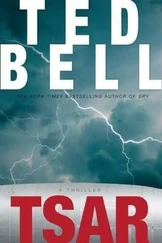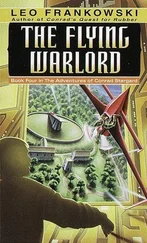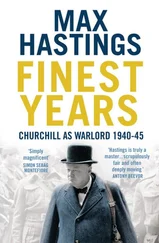"You're not going to stop?" Congreve screamed.
"No! We're going right through them," Hawke shouted above the noise. "There is massive security at the entrance to Highgrove. The boys behind us won't come near it."
"You're going to kill those two men!"
"I'm certainly going to try," Alex said with great solemnity, glancing sideways at his friend. And there it was in his stone-hard eyes, if Congreve needed any further proof. Hawke had buried the pain, buried the hurt, buried the bygone days. The world had tried, God knows, but it could not starve the tiger from those eyes.
Congreve, his ears still ringing, closed his own eyes and braced himself.
Hawke accelerated violently, even as his windscreen went opaque in the hail of bullets blazing from behind the barricade. He was now being fired upon from both front and rear. Unswerving, he put the car on the centerline and aimed straight for the two assailants standing in the road, waiting for them to leap aside.
Or not.
At the last second, one shooter dove to the side.
The other stood his ground, boots planted on either side of the centerline, defiantly firing directly into the windscreen of the onrushing Bentley.
The man's life story, ended abruptly by a massive automobile going over 130 miles per hour, was punctuated by two tiny but distinct bumps in rapid succession as the front and then the rear tires steamrolled over what remained of his corpse.
A second later, the left-side front bumper of the speeding Locomotive caught the rear end of the Rover and sent it cartwheeling through the underbrush beside the road like a toy tossed aside. Hawke glanced at his wing mirror and saw the Rover smash into a huge oak and explode into flame.
Hawke pulled out his mobile, speed-dialed a number, and handed it to Congreve, saying, "This is security at the entrance to Highgrove. Tell them exactly what's happened and ask them to alert both the local police and MI5. Say we'll be at the house in less than fifteen minutes. Bit difficult to see, by the way. Hold on."
Congreve gave Highgrove security the details.
And, for dear life, he held on.
LONDON, ONE YEAR EARLIER
DR. SAHIRA KARIM LOOKED AT HER WATCH. Nearly eight o'clock on a Saturday night. Instead of being where she should be, or, at least, where she dearly longed to be, namely, out at Heathrow putting her fiance, Anthony, on his night flight to New York, she was sitting at her work-cluttered desk at Thames House. Reams of intercepted cellular transcripts and stacks of neighborhood surveillance reports loomed before her.
It promised to be a long night.
At least her newly acquired corner office came with a spectacular view of the Thames River, flowing beneath the gracefully arched Lambeth Bridge just to her left. Tonight the bridge was aglow with slow-moving traffic, wavering halos of white headlamps, and flashing red taillights crisscrossing in the misty rain.
Completed in 1930, Thames House, the stately buildings where Dr. Karim had worked ever since leaving university, were designed in the "Imperial Neoclassical" tradition of Sir Edward Luytens. Headquarters of MI5, or Five, as it was called, the massive complex was a huge improvement over the Secret Service's former digs on Curzon Street and, later, at 140 Gower Street.
Standing almost directly across the Thames, on the Albert Embankment at 85 Vauxhall, stood the headquarters of MI5's "sister" intelligence agency, MI6. This edifice was an unashamedly modern affair, architecturally controversial, and sometimes referred to as "Legoland" by the wags across the river at Five.
In the British Secret Service, there are two distinct entities: MI6, which deals with international intelligence and security matters; and MI5, which deals strictly with domestic affairs, including Northern Ireland. Both halves of the equation had become increasingly complex since 9/11 and the rise of radical Islam, hence Dr. Karim's preposterous workload on this rainy Saturday evening in June.
Dr. Karim was a striking woman, tall, with olive skin, gleaming black hair that brushed her shoulders, full red lips, and dark, liquid eyes beneath long black lashes. She dressed conservatively, as befitted her position, but there was always a startling flare of color just at her neck, flaming scarlet or shimmering yellow silk. Born an only child some thirty years ago in the grim slums of New Delhi, she emigrated with her family to London, and a tiny flat in Fulham, when she was ten. She'd embraced London on sight and had thrived in it ever since.
She'd moved up a bit in the world since her humble origins in the squalid back alleys of her childhood. Sahira had recently been named MI5's new director of domestic intelligence. Her primary responsibilities included Northern Ireland-related terrorism as well as the domestic Islamic extremist groups active in London and throughout the country. Since the most recent London tube and bus bombings, everyone in the building had been on edge, waiting for the next attack.
MI5's counterterrorism section, under Sahira's direction, had foiled more than a few potentially devastating bombings, but that was not common knowledge outside Thames House, nor would it ever be. One of Sahira's primary qualifications for the job was her scientific background in nuclear and nonnuclear weaponry.
In addition to her international affairs credentials, Dr. Karim had a nuclear physics and engineering background, and she sometimes dabbled in weapons design at MI5. Her proudest achievement was a "warbot," an "unmanned ground vehicle" she had nicknamed "Ugg." A few had been produced and were in use by the British Army in Afghanistan. In addition to guns and cameras, Ugg had sensors capable of detecting poison gas, airborne bacteria, and nuclear radiation.
ONE VERY TROUBLING THING CURRENTLY on her radar was an IRA splinter group, which called itself the "Real IRA" or the "New IRA." Ignoring the long-standing peace since the Good Friday Agreement, the New IRA cell had recently been stirring up a lot of trouble in Northern Ireland. Their strategy was simple: if they killed enough British soldiers, members of the former Royal Ulster Brigade, and civilians, they would surely invite loyalist retaliation, and thus reignite the violent struggle for a unified Ireland.
A year ago, dissident Republicans had murdered two British Army soldiers. More recently, a six-hundred-pound bomb had been discovered, buried just outside the village of Forkhill, in south Armagh, Northern Ireland. Meant to kill a Police Service of Northern Ireland patrol, it had been located and disarmed by Dr. Karim and her MI5 Weapons Disposal team just before it exploded. In addition to the deaths and injuries, it would definitely have generated fierce reprisals, and a tidal wave of renewed violence.
Daily, new and ever-increasing threats from Northern Ireland surfaced, and they whistled over Sahira's head like a scythe.
Closer to home were the radical Islamic terrorists born to immigrant parents right here in Britain. Ever since the horrific London transit bombings in the summer of 2005, Sahira's section had been focused on suspicious activities in the heavily Pakistani inhabited regions of East London. And working-class towns like Leeds and Birmingham.
After years of study, she knew this highly volatile domestic Muslim population demanded constant vigilance and never-ending surveillance. The United Kingdom was now home to the largest immigrant Arab population in Europe, one that was always simmering. And one that could boil over at any given moment.
That's why she was sitting here tonight instead of out at Heathrow kissing Tony, her fiance, good-bye. They had managed to squeeze in a quick farewell lunch at the Ivy, and he'd given her a lovely string of antique pearls from Asprey's, but still. She already missed him. They were to be married in less than a month.
Читать дальше












